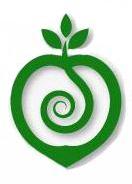belly fat and calcium
What's the connection?
Belly fat and calcium seems like an unlikely connection, however, calcium is one of the most abundant minerals in the body. It plays an important role in building stronger, denser bones early in life and keeping bones strong and healthy later in life.Calcium allows blood to clot, nerves to send messages, and muscles to contract.
The majority of people do not get adequate calcium in their diets on a daily basis. The body also loses calcium every day through skin, nails, hair, sweat and waste.
If our diet is lacking in calcium, our body will use the calcium from our bones. The human body cannot produce calcium on its own. Calcium is essential to maintaining total-body health in both men and women.
However, is there a connection between belly fat and calcium?
A recent study published in the British Journal of Nutrition showed that if an obese woman’s calcium consumption is low, then increasing her intake while cutting calories can result in a much higher weight loss.
In the study, women who were deficient in calcium consumption were given 1200 mg a day or a placebo. The women who were given the calcium lost an average of 13.3 pounds, as opposed to the placebo group, who only lost 6.2 pounds.
Another study looking at belly fat and calcium from the University of Tennessee showed that a calcium rich diet, with no change in other food intakes, can substancially reduce belly fat.
The study placed subjects on 1200 mg of Calcium per day with no other changes: no change in eating, no change in exercise, and no change in daily eating habits. Without any modification at all except for an increase of Calcium, people in the study saw a reduction in jean sizes and the shrinkage of belly fat.
How much Calcium should I take?
This depends on many factors, such as age, gender and bone mineral density. For most people, a daily intake between 1000-and-1500 milligrams of calcium is recommended.
According to the National Osteoporosis Foundation, the following are the minimum daily requirements:
- Children (1-3 years) 500 milligrams
- Children (4-8 years) 800 milligrams
- Teenagers (9-18 years) 1300 milligrams
- Adults (19-49) 1000 milligrams
- Adults (50 and over) 1200 milligrams
- Pregnant & Breast-feeding Women (19 and over) 1000 milligram
Sources of Calcium
Here are some good sources of calcium:
- Milk, Yogurt, a lot of cheeses, and buttermilk
- Green vegetables like broccoli, collards, kale, mustard greens, turnip greens, and bok choy or Chinese cabbage
- Salmon and sardines canned with their soft bones
- Shellfish, almonds, Brazil nuts, and dried beans
- Calcium enriched breads and orange juices
Calcium Supplements
The calcium per dose: Look for the amount of “elemental” calcium in each tablet or dose. It is this number that will contribute to your daily calcium intake. For example, a 1250 mg tablet of calcium carbonate may contain 500 mg of elemental calcium. You can count this 500 mg as part of your calcium for the day.
Type of supplement: Supplements come in chewable, powder, liquid or tablet (pill) form. Choose the type that is most convenient and comfortable for you. Some calcium supplements may also cause side effects like stomach upset, constipation or nausea. If you are not happy with the supplement that you are taking, look for a different brand or preparation.
Safety: To be sure that a supplement has passed safety regulations, look for one of these groups of initials: DIN, NPN, GP, USP.
Tablet size: Tablets come in all different sizes, some of which may be harder for you to swallow. If you can’t tell the size from the bottle, speak to the pharmacist.
Ingredients: The calcium that goes into the supplements comes from a few different sources. If you have a seafood or shellfish allergy, do not take supplements that have coral or oyster* in the ingredients list. Other calcium sources like bone meal, fossils, oyster shell and dolomite (a rock mineral) may contain high amounts of lead. If you are going to be on supplements for a long time, speak to the pharmacist about lead free sources.
*Oyster is also sometimes referred to as a “natural source” on the label.
Vitamin D: If you are not getting enough calcium from food, you may also not be getting enough vitamin D. For a reduction in belly fat and calcium to work, look for supplements that are a combination of calcium and vitamin D.
For the belly fat and calcium results, a good quality calcium source is essential. IsaCalcium® is delicious and provides your body with the calcium it needs, as well as essential vitamin D and magnesium, for healthier and stronger bones.

Click on the link below to go directly to the best whey protein on the market today and get wholesale pricing.
Over 90% bioavailable to muscles!
We welcome your questions /comments:
Click here to contact.
DID YOU KNOW?
"Whey protein is the highest quality of proteins because it contains the perfect combination of overall amino acids."
Feel Good About Yourself
(CD)
The Feel Good About Yourself CD contains 3 specially selected hypnosis sessions.





